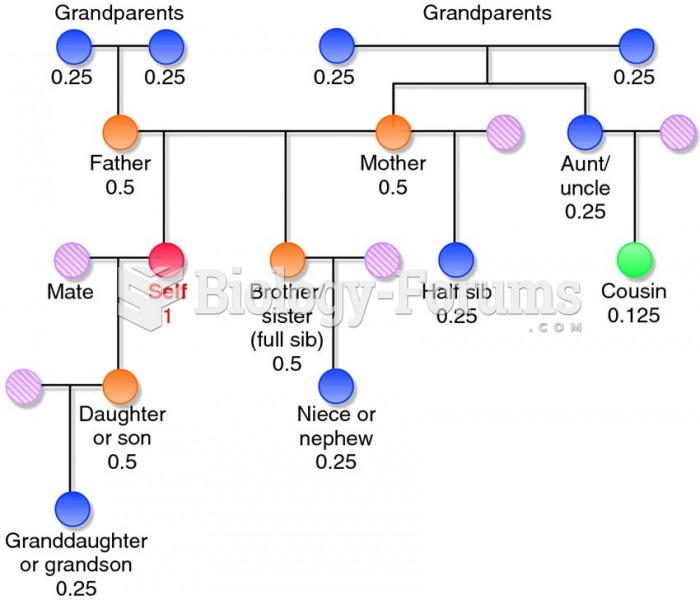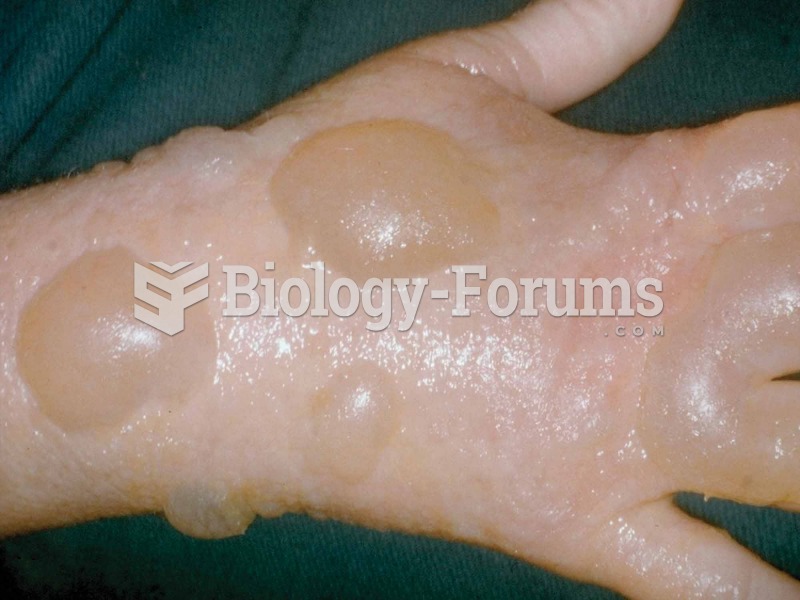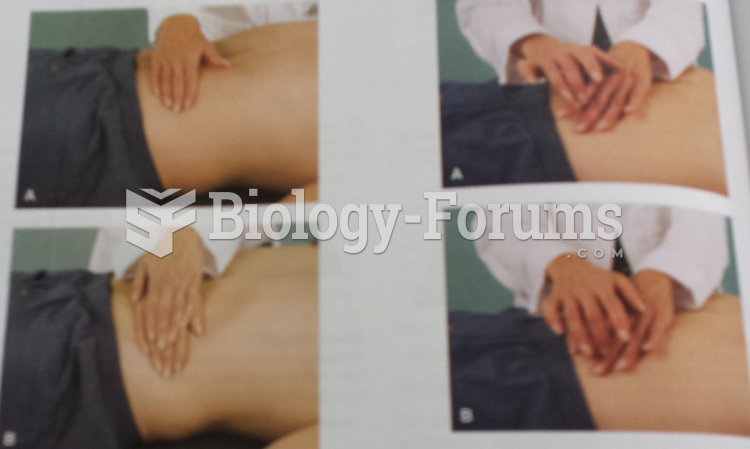|
|
|
The Romans did not use numerals to indicate fractions but instead used words to indicate parts of a whole.
Amphetamine poisoning can cause intravascular coagulation, circulatory collapse, rhabdomyolysis, ischemic colitis, acute psychosis, hyperthermia, respiratory distress syndrome, and pericarditis.
People with alcoholism are at a much greater risk of malnutrition than are other people and usually exhibit low levels of most vitamins (especially folic acid). This is because alcohol often takes the place of 50% of their daily intake of calories, with little nutritional value contained in it.
Cyanide works by making the human body unable to use oxygen.
Bacteria have flourished on the earth for over three billion years. They were the first life forms on the planet.







